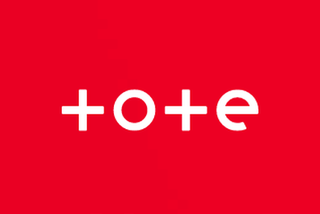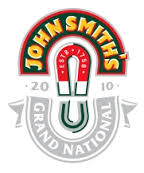
A bookmaker, bookie, or turf accountant is an organization or a person that accepts and pays off bets on sporting and other events at agreed-upon odds.

Horse racing is the second largest spectator sport in Great Britain, and one of the longest established, with a history dating back many centuries. According to a report by the British Horseracing Authority it generates £3.39 billion total direct and indirect expenditure in the British economy, of which £1.05 Billion is from core racing industry expenditure and the major horse racing events such as Royal Ascot and Cheltenham Festival are important dates in the British and international sporting and society calendar.
A betting exchange is a marketplace for customers to bet on the outcome of discrete events. Betting exchanges offer the same opportunities to bet as a bookmaker with a few differences. Gamblers can buy and sell the outcome, and they can trade in real-time throughout the event, either to cut their losses or lock in profit. Bookmaker operators generate revenue by offering less efficient odds. Betting exchanges normally generate revenue by charging a small commission on winning bets.
Paddy Power is an Irish bookmaker founded in 1988 in Dublin, Ireland. The company conducts business through a chain of licensed betting shops in Ireland and the United Kingdom, and by operating Ireland's largest telephone betting service. On the internet, it offers sports betting, online poker, online bingo, online casino and online games. It merged with Betfair to create Paddy Power Betfair on 2 February 2016.

In the United Kingdom, Ireland, Australia and New Zealand, a betting shop is a shop away from a racecourse ("off-course") where one can legally place bets in person with a licensed bookmaker. Most shops are part of chains including William Hill, Ladbrokes, or Coral. In Australia and New Zealand, they are operated by totalisator agencies In the United States post PASPA, brands like DraftKings, FanDuel and William Hill have a presence. Betting shops include America's Betshop and Betfred.

Ladbrokes Coral is a British betting and gambling company. It is based in London. It previously owned the Hilton hotel brand outside the United States, and was known as Hilton Group plc from 1999 to 2006. In November 2016, Ladbrokes acquired Gala Coral Group, and changed its name to Ladbrokes Coral.
The Australian and New Zealand punting glossary explains some of the terms, jargon and slang which are commonly used and heard on Australian and New Zealand racecourses, in TABs, on radio, and in the horse racing media. Some terms are peculiar to Australia, such as references to bookmakers, but most are used in both countries.
Gambling in the United Kingdom is regulated by the Gambling Commission on behalf of the government's Department for Digital, Culture, Media and Sport (DCMS) under the Gambling Act 2005. This Act of Parliament significantly updated the UK's gambling laws, including the introduction of a new structure of protections for children and vulnerable adults, as well as bringing the burgeoning Internet gaming sector within British regulation for the first time.

The Tote, formerly the Horserace Totalisator Board and called in rhyming slang the nanny, is a British bookmaker with head offices in Wigan. It was owned from its formation in 1928 by the UK Government but was sold to Betfred in July 2011, and later sold to UK Tote Group, formerly Alizeti Capital, in October 2019. Under the brand totesport the Tote had 514 high street betting shops, outlets on most of Britain's 60 racecourses, as well as internet and call centre divisions. The company is known for its pool bets such as the Scoop6, and until 13 July 2008 was the only organisation in the UK that was allowed to run pool betting on horseracing. On 13 July 2018 Colossus Bets among others entered the UK market offering Horse racing (tote) pools also in competition with The Tote.
Late betting or past posting is making a bet after the time when no more bets are to be taken. It is considered cheating; information may have become available, including the outcome of the event, that was not available to those making earlier bets.
Gay Future was the racehorse at the centre of an attempted fraud by an Irish betting syndicate in Great Britain in 1974 involving two chestnut horses. The plot's ringleaders were the millionaire Irish builder Tony Murphy, a racing enthusiast, and the Scottish trainer Antony Collins.

BoyleSports is a bookmaker that comes from the republic of Ireland

Betfred is a bookmaker based in the United Kingdom, founded by Fred Done. It was first established as a single betting shop in Ordsall, Salford, in 1967. Its turnover in 2004 was reported to be more than £3.5 billion, having risen from £550 million in 2003 and has continued to grow to over £10 billion in 2018-2019. It has its head office is in Birchwood, Warrington, and also has offices in Media City, Salford Quays, Salford.
The Tote is a bookmaker in Britain which offers parimutuel betting on British horse racing in Britain. The firm was owned by the UK Government from 1928 and was the only bookmaker in Britain allowed to offer parimutuel betting on horse racing. The Tote was then sold to Betfred in July 2011 for £265 million, allowing them to offer parimutuel betting services.
Sports Information Services (SIS) is a company which provides content and production services to the betting industry; such as horse racing and greyhound racing, to betting shops in the United Kingdom and Ireland and other worldwide destinations. Previously, they provided news gathering services and specialized broadcast solutions to clients beyond betting industry.
Bernard Joseph Curley was a racehorse trainer, gambler and founder of the Zambian charity DAFA from Northern Ireland
Gambling in South Africa has been heavily restricted since 1673, with South Africa's Gambling Act of 1965 officially banning all forms of gambling except betting on horse racing which existed as a sporting activity.

The 2010 Grand National was the 163rd renewal of the Grand National horse race that took place at Aintree near Liverpool, England, on 10 April 2010.
Shane Kelly is an Irish jockey. He is a native of Cloone, County Leitrim.

Betting on horse racing or horse betting commonly occurs at many horse races. It started in the UK in the early 1600s during the reign of King James I. Gamblers can stake money on the final placement of the horses taking part in a race. Gambling on horses is, however, prohibited at some racetracks. For example, because of a law passed in 1951, betting is illegal in Springdale Race Course, home of the nationally renowned Toronto-Dominion Bank Carolina Cup and Colonial Cup Steeplechase in Camden, South Carolina.









